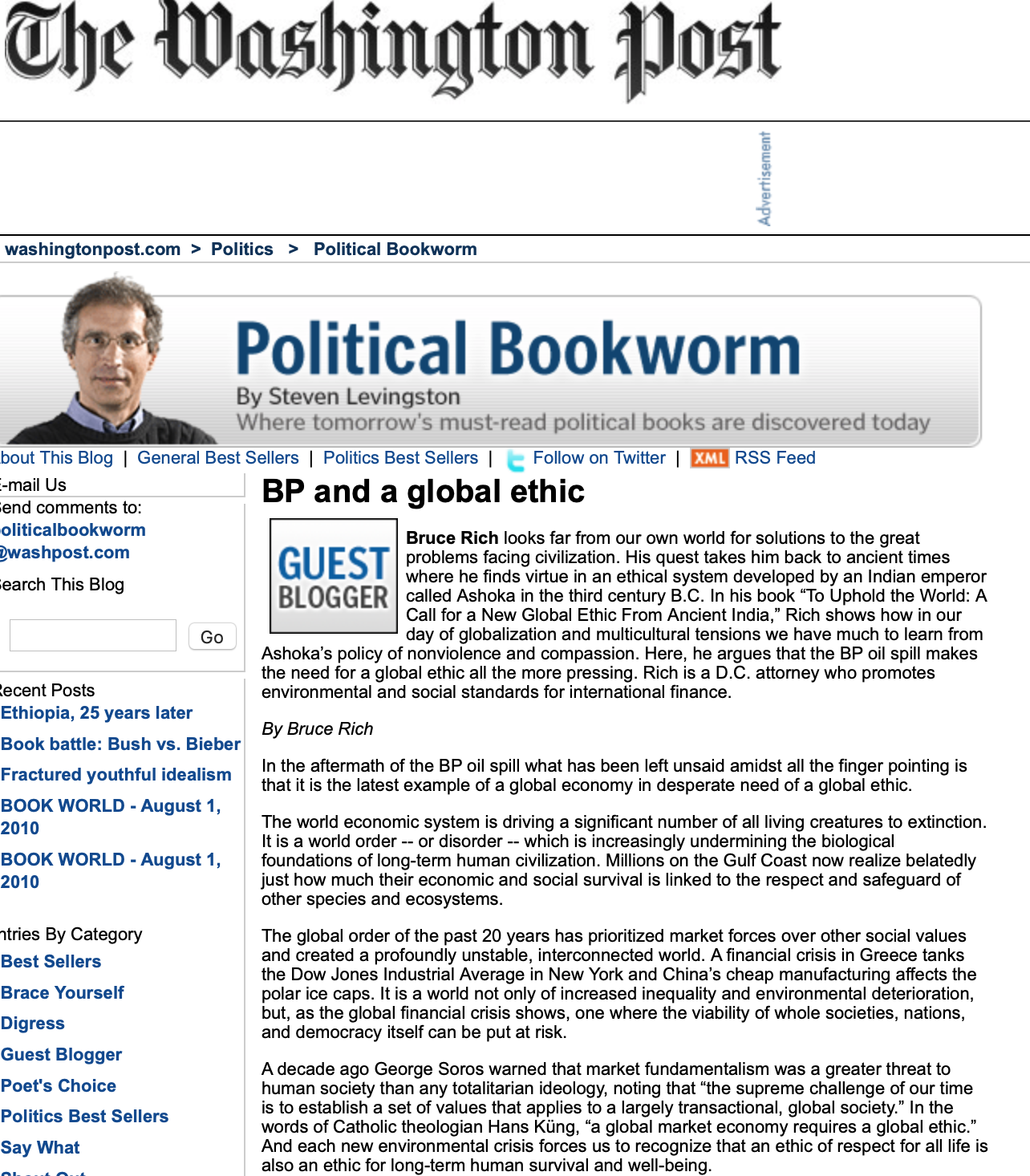- Bruce Rich
- Washington Post, Political Bookworm--Guest Blog for Steve Levingston, Non-Fiction editor of the Washington Post
- June 22, 2010
In the aftermath of the BP oil spill what has been left unsaid amidst all the finger pointing is that it is the latest example of a global economy in desperate need of a global ethic. As an advocate for environmental and social standards for international finance, I thought of the historical nature of this principle, when in India I came across edicts etched into rock faces and stone pillars by the 3rd Century BC Indian Emperor Ashoka. His edicts, inscribed over much of South Asia set forth a secular ethic of compassion and non-violence, religious toleration, establishment of forest and nature reserves, and protection of species. Ashoka established a network of free medical services for humans and animals throughout his empire, as well as social welfare for widows and the indigent. Ashoka’s great ethical leap might not have taken place without the foundations laid by Kautilya, the chief counselor of Ashoka’s grandfather. Kautilya wrote history’s first treatise on economics, the “Arthasastra,” literally the “science of material wealth,” which proclaimed the accumulation of material riches as the chief underpinning of human society. He also recommended amoral realpolitik as an effective political approach and was a master of the practice. Though their reasoning was different, Kautilya and Ashoka both helped the poor and protected forests and animals. Kautilya thought such measures strengthened the long-term stability of the state, while Ashoka acted on ethical principles of non-violence and protection of all life. Like Ashoka, we are living in a Kautilyan age and must find a global ethic to preserve our civilization. Thinkers from Ashoka to Adam Smith to Amartya Sen all see that if human society is to survive, economic activity has to be embedded in a framework of common ethical values, a global consensus to guide national and international economic activity. The BP disaster, coming in the wake of the global economic crisis, is yet one more wake up call. How many more are needed?



